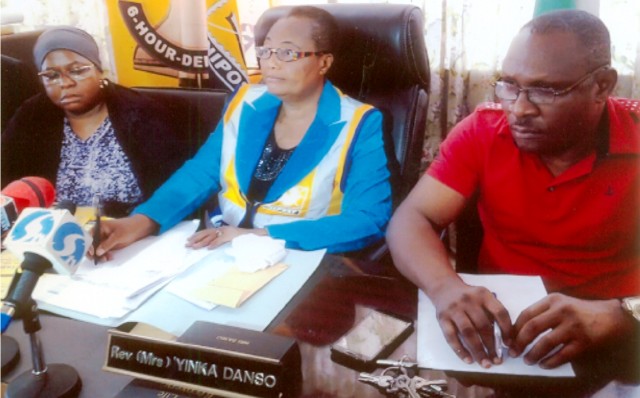Business
Petroleum Marketers Suspend Planned Strike

The Independent Petroleum Marketers Association of Nigeria, IPMAN, last Monday announced the suspension of a scheduled nationwide strike. The decision came after a meeting with the Group Managing Director of the Nigerian National Petroleum Corporation (NNPC).
IPMAN said this in Abuja in a statement released by Mr Ndu Ughamadu, NNPC Group General Manager, Public Affairs Division.
The statement quoted the Chairman of the IPMAN Committee on FOREX Intervention, Products Sourcing and Distribution, Alhaji Musa Felande, as saying that the meeting also addressed all pending issues concerning the Association.
Felande said the meeting also put to rest earlier grievances on issues relating to products supply, equalization fund, access to forex and pricing of products which are of interest to IPMAN.
”This is a very remarkable day for IPMAN and the country. We want to let the public know today that IPMAN is now one single group and we are determined to continue to support the government.
“We are calling on all our IPMAN members to go on with the usual supply and distribution of products in their respective stations and retail outlets across the country,’’ Felande appealed.
Quoting Alhaji Zarma Mustapha, another member of the committee, the statement said that the decision of the Dr Maikanti Baru-led NNPC Management to intervene on the issue of bulk purchase agreement had gone a long way in soothing the frayed nerves of some IPMAN members across the country.
He said IPMAN, whose members ”own 19, 000 out of the 25, 000 registered fuel outlets across the country”, had resolved not only to work with the NNPC in ensuring fuel availability but also to do so under a united IPMAN.
The meeting agreed to find a solution to long queues which suddenly resurfaced at petrol stations on Monday.
Transport
Automated Points Concession : FAAN Workers Gave 72hrs To Revise Decisions In PH

Transport
FAAN Announces Pick-Up Points for Go-Cashless Cards

Business
Fidelity Bank To Empower Women With Sustainable Entrepreneurship Skills, HAP2.0
-
Politics3 days ago
2027: NIGERIANS FAULT INEC ON DIGITAL MEMBERSHIP REGISTER DIRECTIVE
-

 Environment3 days ago
Environment3 days agoLAWMA Director Says Sweeping Reforms Have Improved Waste Collection
-
Politics3 days ago
LP Crisis: Ex-NWC Member Dumps Dumps Abure Faction
-

 Politics3 days ago
Politics3 days agoUmahi Dismisses Allegations On Social Media, Insists On Projects Delivery
-

 Sports3 days ago
Sports3 days agoAbia Not Sure To Secure continental Ticket
-
Politics3 days ago
NATASHA ELECTRIC VEHICLES INITIATIVE IN KOGI CENTRAL
-
Sports3 days ago
La Liga: Yamal Records First Career Hat-trick
-
Politics3 days ago
IT’S A LIE, G-5 GOVS DIDN’T WIN ELECTION FOR TINUBU – SOWUNMI

